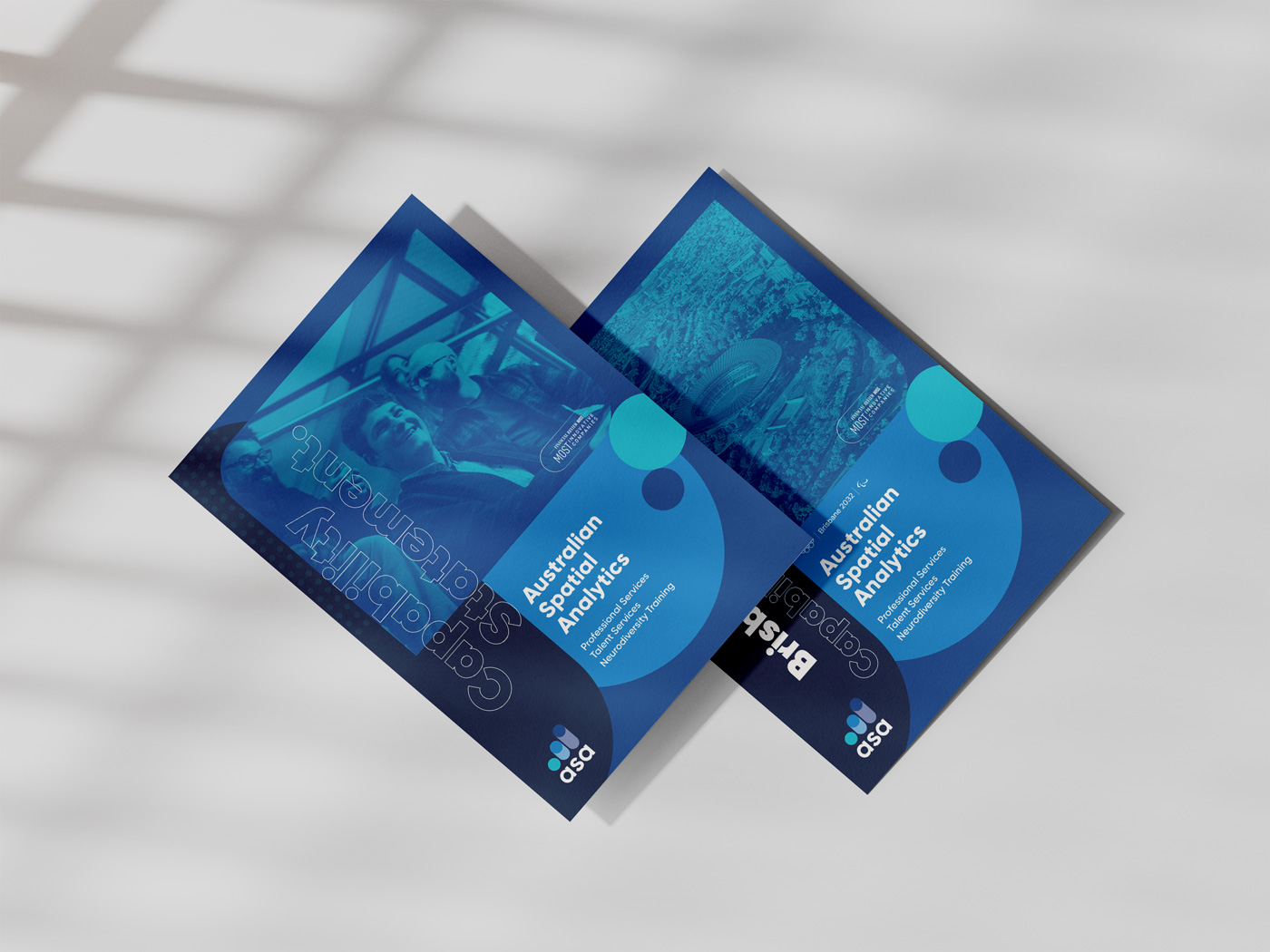by Geoff Smith, CEO, Australian Spatial Analytics
Every year, on April 2, the world is flooded with a sea of light blue, raising ‘awareness’ of autism. We often see buildings illuminated, countless social media posts with blue filters, and celebrities sporting blue ribbons like it’s the latest fashion statement. Yet, there is one crucial fundamental question that needs to be answered:
Where's the action?
We need to move beyond campaigns that happen once a year and instead address the glaring injustice faced by neurodivergent individuals, particularly those on the autism spectrum.
Neurodivergent people aren’t a minority group. In Australia alone, almost 400,000 people are living with Autism Spectrum Disorder (ASD). Most of them have been shunted to the periphery of our society when they could be working to their strengths and making a significant contribution to the world.
Autistic unemployment costs everyone socially and economically. Here are some hard-hitting statistics.
A recent study estimated the United Kingdom loses over £14.5 billion (~$AUD 28 billion) annually because of autistic unemployment. While a similar study hasn’t been undertaken in Australia, we just need to look at our National Disability Insurance Scheme (NDIS), which is only getting larger and more expensive. More than 30% of all NDIS participants name autism as their primary disability—90% of these are under 25.
The latest figures showed the NDIS paid over $AUD6.5 billion for autism-related conditions in the financial year ending 30 June 2023, compared to $AUD5.27 billion in the previous year—a whopping 28% increase. This is obviously not sustainable. Autism is the fastest-growing ‘disability’ in the Western world, yet few alternative pathways are available for them to access well-paid careers.
These figures aren’t just large numbers. This represents lives in limbo, dreams deferred, and wasted potential. These amazing individuals have unique strengths, exceptional talents, and a hunger to contribute to our society. But instead of being valued for their individuality, they are marginalised, misunderstood, and often left on the fringes.
At Australian Spatial Analytics (ASA), we don't just talk about neuro-inclusion; it’s part of our DNA. We refuse to accept the ridiculously high 34% unemployment rate for neurodivergent people. It's a mortifying statistic—an unemployment rate 10 times higher than the Australian average!
Here's the truth: neurodiversity isn't an illness; it's simply diversity. It's a spectrum of individual differences. Yet, the stigma persists, fuelling misconceptions that those with autism are somehow deficient or incapable. We’ve accepted this flawed narrative for far too long as a society.
It's time to recognise the values and aspirations of neurodivergent people before we consider the challenges they can face. Being neurotypical person living in a neurotypical world, I am one of the lucky ones–since entering the workforce, employers have backed my strengths first before addressing the areas of development I need. It should be like that for everyone. It’s time to destroy the myths and embrace the reality: neurodivergent individuals, particularly those with autism, often possess exceptional attention to detail, incredible focus, and a keen eye for patterns.
These are precisely the skills that are needed right now in fields like geospatial analysis and digital engineering, which are experiencing severe skills shortages. At ASA, we harness and embrace these strengths. We don't try to ‘fix’ people; we take them for who they are and build on their unique strengths. We provide targeted training, supportive environments, and flexible work arrangements.
We all know that no one thrives in the wrong environment, whoever you are! It's not rocket science!
The results speak for themselves. Over 150 neurodivergent individuals have found stable, fulfilling careers at ASA, transitioning from long-term unemployment to active economic contributors. This isn't just good for them; it's good for everyone.
The world is missing out on a vast talent pool due to outdated biases and a reluctance to adapt. Creating neuroinclusive workplaces requires minimal adjustments like clear communication, predictable routines, and flexible workspaces. This isn't about creating charities or ‘sheltered workshops’—it's smart business! Organisations like Acciona and the Department of Resources already know that neurodiversity adds value to their workplaces. But unfortunately, they’re in the minority.
Here's my challenge to you. If you really care about empowering neurodivergent individuals, try this:
• Educate yourself: break down your ignorance and misinformed perspectives.
• Embrace neurodiversity: see the potential, not the limitations.
• Challenge the status quo: question discriminatory practices and advocate for inclusive policies.
This World Autism Awareness Day, light a fire for change. Don't just wear blue; take action. Advocate for autistic individuals, smash down the barriers, and build a world where everyone, regardless of their neurotype, can reach their full potential.
Need more convincing? Check out our analyst stories and see what they are capable of. We have countless stories where neurodivergent individuals, who faced years of ludicrous barriers to accessing meaningful employment, are now providing essential big data services that Australia’s economy desperately needs. For more details on how we make neurodiversity in the workplace thrive, see more in my interview with Authority Magazine on why it’s important to include neurodiverse employees.
The time for ‘awareness’ is over. It's time for action, inclusion, and a future where everyone thrives. Come and join us in embracing neurodiversity!




